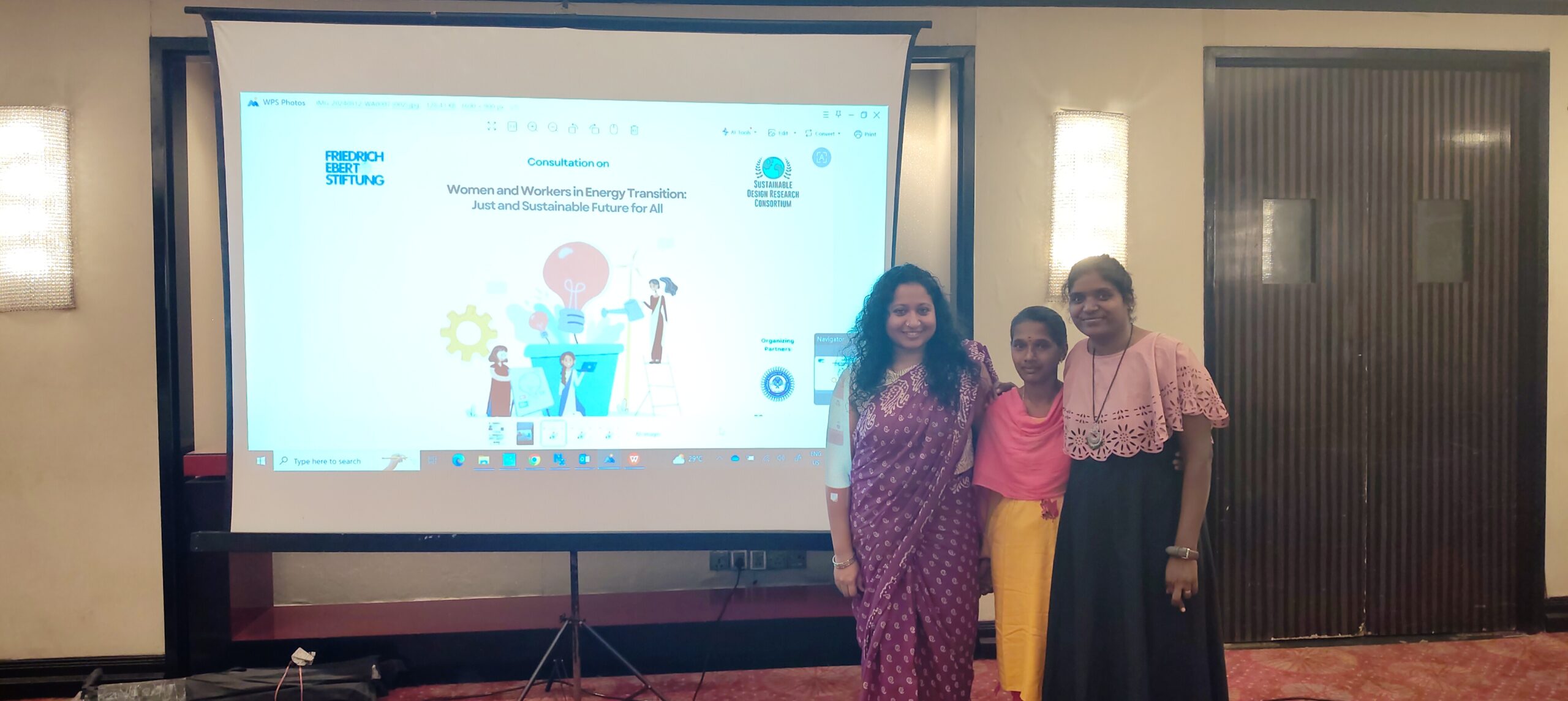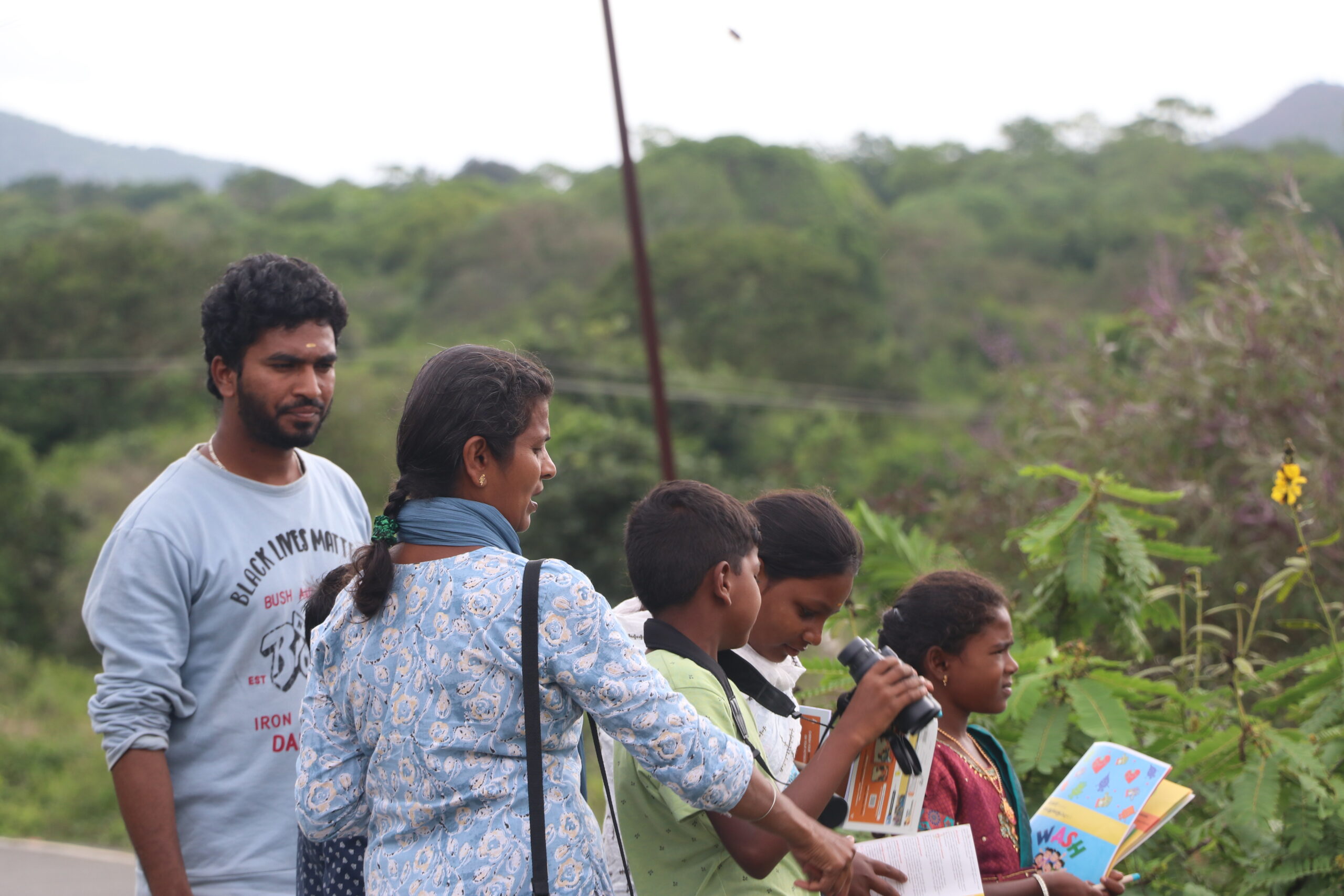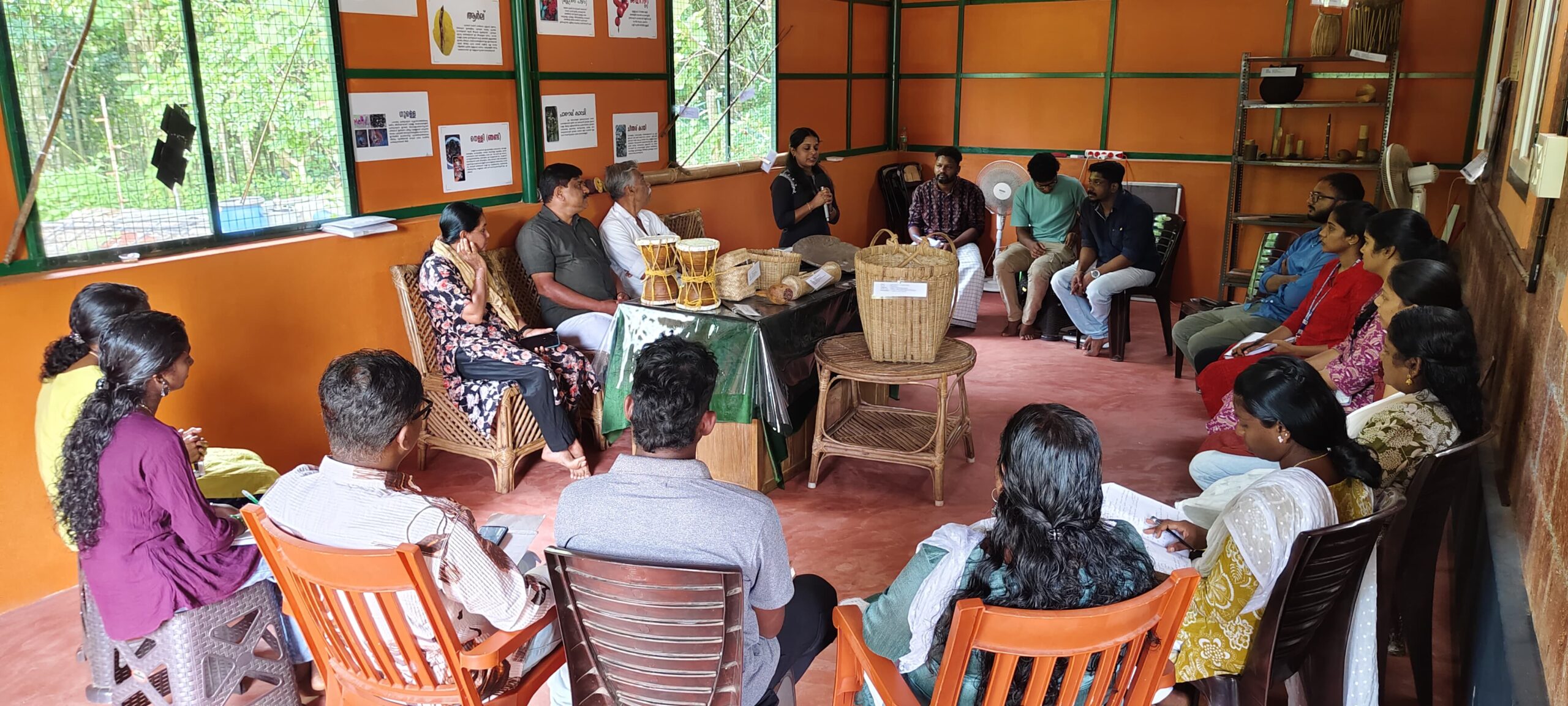By Bhavya George, Programme Coordinator, Climate Change
In the context of policies and pledges in the global climate change scenario, India is striving towards reaching net zero by 2070 with higher emphasis on shift to renewable energy. On the same path states are also striding to achieve this aspiring target. Tamil Nadu has set an ambitious goal to build upon its climate initiatives and become net zero by 2050.
The Nilgiris has been one of the 4 carbon neutral districts selected to lead the actions on carbon mitigation and climate consciousness. A Just energy transition is a shift or transition to non-fossil fuel energy sources as a means of reducing carbon emissions. This in turn reduces climate impacts while ensuring benefits to all people and communities, including those who are vulnerable and marginalized.
In this context, we initiated a baseline survey, lead by Sathya and Prema in their villages in Sigur. They focused on the correlation between energy and social-economic-ecological and cultural issues. They primarily looked at the status of energy service access in Adivasi villages in protected areas, considering factors such as whether services are adequate, affordable, reliable, high-quality, safe, and environmentally benign.
We were invited to be part of two days consultation on Women and Workers in Energy Transition: Just and Sustainable Future For All held at The Park, Chennai on 12th and 13th August 2024. For Sathya, Prema and I, these two days resonated in different ways. For me, it helped to get new perspective on how just energy transition projects are lead, and to consider relevant policies and stakeholders. I also saw this as an opportunity to find actionable solutions in our work.
Sathya felt that the consultation focused more on the success of just energy transitions, and less so on challenges and failures. Listening to Ms. Priya Pillai from Asar, she understood the land issues behind renewable energy projects and how the rights of tribals and other marginalized communities are not considered. She also got to know the importance of FPIC in the process of Just Transition.
For Prema, this was a new and unique experience as it was her first time attending such event with participants from different organizations and government departments from across India. Similar to Sathya, she felt the whole discussion on land in terms of implementation of renewable energy projects hit hard. Besides the workshop experience, she saw the sea for the first time, with mixed feelings of excitement and fear!
We thank Friedrich Ebert Stifung, Sustainable Design Research Consortium, Madras School of Social Sciences and SPROUTS for the space to participate and present our case on energy issues from our field area. Sathya and Prema each shared a story from their village, which lead to the discussion on energy equity with the question: are the needs and demands of Adivasis, especially Adivasi women, considered in this new energy scenario?
.


















